Wagashi are traditional Japanese sweets usually made from mochi, bean paste, or fruit. If you’ve been to Japan or a nice Japanese restaurant, perhaps you enjoyed one sculpted to look like a flower, crane or some other very old-fashioned Japanese image.
Like most things in Japan, no matter how venerable, give it enough time and it will be kawaii-ified. Enter sweets shop Kuramoto Hinode, where a veteran wagashi chef has begun crafting anime and pop culture based sweets with leftover bits and bobs.
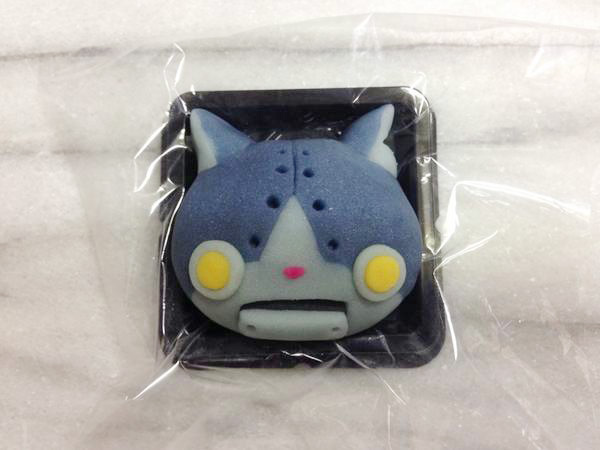

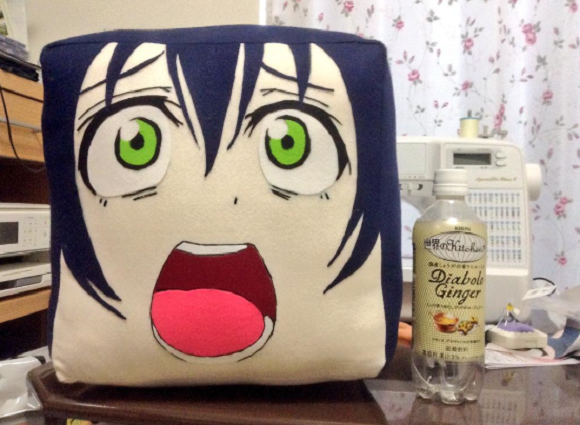

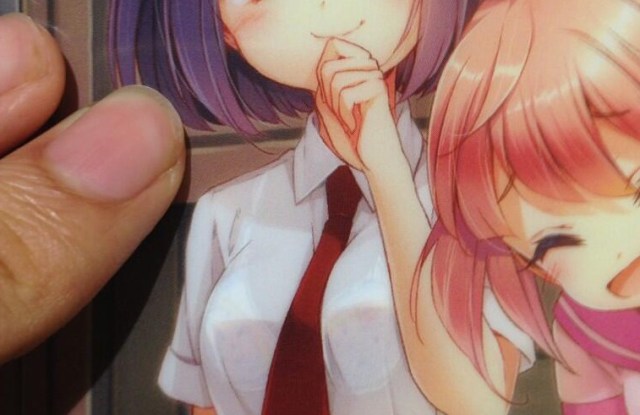
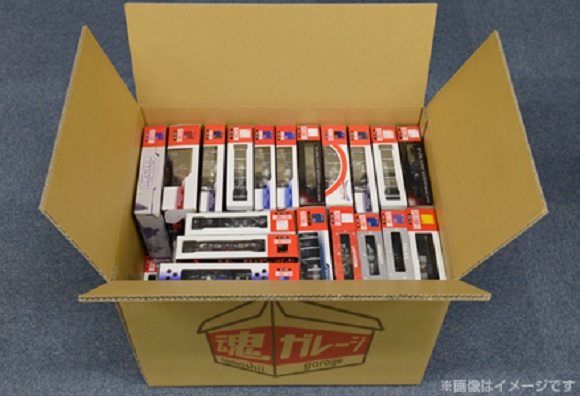

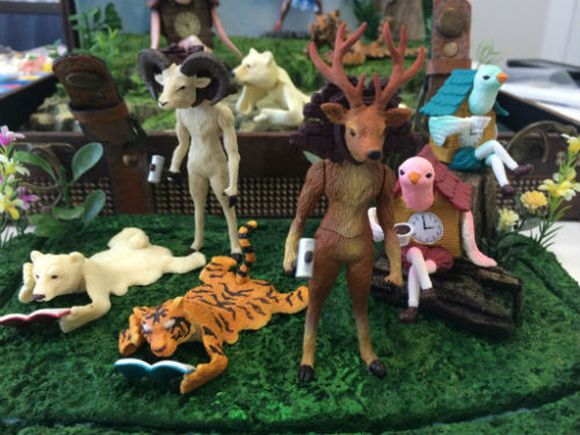

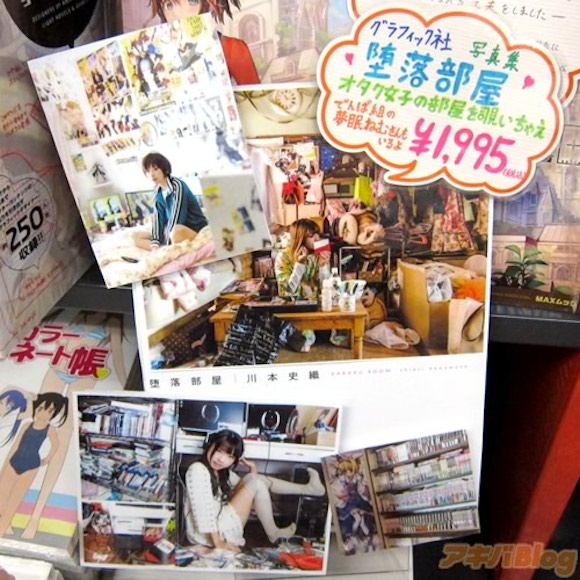
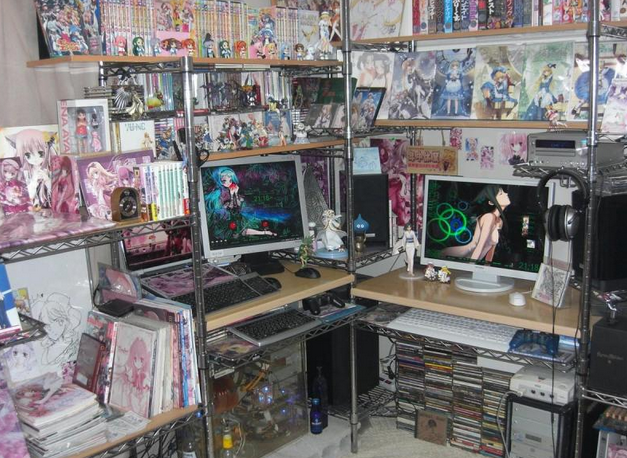


 Starbucks Japan releases new Frappuccino and latte for Valentine’s Day
Starbucks Japan releases new Frappuccino and latte for Valentine’s Day What’s inside Starbucks Japan’s fukubukuro lucky bag for 2026?
What’s inside Starbucks Japan’s fukubukuro lucky bag for 2026? New adults go wild at Seijinshiki Coming-of-Age ceremony in Kitakyushu, Japan 【Photos】
New adults go wild at Seijinshiki Coming-of-Age ceremony in Kitakyushu, Japan 【Photos】 Man arrested for violating Japan’s anti-dueling law in downtown Tokyo
Man arrested for violating Japan’s anti-dueling law in downtown Tokyo Giant hotel rooms in Osaka reflect the new non-niche face of travel in Japan.
Giant hotel rooms in Osaka reflect the new non-niche face of travel in Japan. Researchers in Japan give mouse glowing sperm
Researchers in Japan give mouse glowing sperm Bamboo trees vandalized near Kyoto’s Fushimi Inari shrine, foreign graffiti prevalent
Bamboo trees vandalized near Kyoto’s Fushimi Inari shrine, foreign graffiti prevalent Ramen restaurant’s English menu prices are nearly double its Japanese ones, denies discriminating
Ramen restaurant’s English menu prices are nearly double its Japanese ones, denies discriminating Our male otaku tries Japan’s anime heroine mascara, learns what it’s like to be shojo manga star
Our male otaku tries Japan’s anime heroine mascara, learns what it’s like to be shojo manga star Japanese-style accommodation at the new Premium Dormy Inn hotel in Asakusa will blow your mind
Japanese-style accommodation at the new Premium Dormy Inn hotel in Asakusa will blow your mind 10 times to avoid traveling in Japan in 2026
10 times to avoid traveling in Japan in 2026 Our 52-year-old pole dancing reporter shares his tips for achieving your New Year’s exercise goal
Our 52-year-old pole dancing reporter shares his tips for achieving your New Year’s exercise goal Japanese beef bowl chain Sukiya’s 2026 Smile Box lucky bag basically pays for itself
Japanese beef bowl chain Sukiya’s 2026 Smile Box lucky bag basically pays for itself Top Japanese cosplayer Enako returns to Comiket after 6 years, creates mayhem with admirers
Top Japanese cosplayer Enako returns to Comiket after 6 years, creates mayhem with admirers Umamusume anime girl plushie recalled for having parts she absolutely should not have【Pics】
Umamusume anime girl plushie recalled for having parts she absolutely should not have【Pics】 Princess Mononoke magnets return just in time to treat yourself to awesome anime decorations
Princess Mononoke magnets return just in time to treat yourself to awesome anime decorations We ate sushi made from Japan’s most expensive tuna ever【Taste test】
We ate sushi made from Japan’s most expensive tuna ever【Taste test】 Starbucks Japan ready to get Year of the Horse started with adorable drinkware and plushies【Pics】
Starbucks Japan ready to get Year of the Horse started with adorable drinkware and plushies【Pics】 7-Eleven Japan starts new temporary luggage storage service in over 300 branches
7-Eleven Japan starts new temporary luggage storage service in over 300 branches Disillusionment at Tsukiji’s tourist-target prices led us to a great ramen restaurant in Tokyo
Disillusionment at Tsukiji’s tourist-target prices led us to a great ramen restaurant in Tokyo Starbucks teams up with 166-year-old Kyoto doll maker for Year of the Horse decorations【Photos】
Starbucks teams up with 166-year-old Kyoto doll maker for Year of the Horse decorations【Photos】 Tokyo’s Tsukiji sushi neighborhood asks tour groups to stay away for the rest of the month
Tokyo’s Tsukiji sushi neighborhood asks tour groups to stay away for the rest of the month Japan may add Japanese language proficiency, lifestyle classes to permanent foreign resident requirements
Japan may add Japanese language proficiency, lifestyle classes to permanent foreign resident requirements Lacquerware supplier to emperor of Japan and Pokémon team up for new tableware
Lacquerware supplier to emperor of Japan and Pokémon team up for new tableware Survey asks foreign tourists what bothered them in Japan, more than half gave same answer
Survey asks foreign tourists what bothered them in Japan, more than half gave same answer Japan’s human washing machines will go on sale to general public, demos to be held in Tokyo
Japan’s human washing machines will go on sale to general public, demos to be held in Tokyo We deeply regret going into this tunnel on our walk in the mountains of Japan
We deeply regret going into this tunnel on our walk in the mountains of Japan Studio Ghibli releases Kodama forest spirits from Princess Mononoke to light up your home
Studio Ghibli releases Kodama forest spirits from Princess Mononoke to light up your home Major Japanese hotel chain says reservations via overseas booking sites may not be valid
Major Japanese hotel chain says reservations via overseas booking sites may not be valid Put sesame oil in your coffee? Japanese maker says it’s the best way to start your day【Taste test】
Put sesame oil in your coffee? Japanese maker says it’s the best way to start your day【Taste test】 No more using real katana for tourism activities, Japan’s National Police Agency says
No more using real katana for tourism activities, Japan’s National Police Agency says Starbucks Japan reveals new sakura drinkware collection, inspired by evening cherry blossoms
Starbucks Japan reveals new sakura drinkware collection, inspired by evening cherry blossoms Updated cherry blossom forecast shows extra-long sakura season for Japan this year
Updated cherry blossom forecast shows extra-long sakura season for Japan this year Human washing machine pods coming to Japanese hotels【Photos】
Human washing machine pods coming to Japanese hotels【Photos】 Researchers in Japan give mouse glowing sperm
Researchers in Japan give mouse glowing sperm Bamboo trees vandalized near Kyoto’s Fushimi Inari shrine, foreign graffiti prevalent
Bamboo trees vandalized near Kyoto’s Fushimi Inari shrine, foreign graffiti prevalent Ramen restaurant’s English menu prices are nearly double its Japanese ones, denies discriminating
Ramen restaurant’s English menu prices are nearly double its Japanese ones, denies discriminating Our male otaku tries Japan’s anime heroine mascara, learns what it’s like to be shojo manga star
Our male otaku tries Japan’s anime heroine mascara, learns what it’s like to be shojo manga star Japanese-style accommodation at the new Premium Dormy Inn hotel in Asakusa will blow your mind
Japanese-style accommodation at the new Premium Dormy Inn hotel in Asakusa will blow your mind Japanese women show continuing decline in how much they expect a husband to earn in survey
Japanese women show continuing decline in how much they expect a husband to earn in survey Yokohama Bikini Bar Promises Summer, Bleached Blonde Hair All Year Round
Yokohama Bikini Bar Promises Summer, Bleached Blonde Hair All Year Round Young Japanese men say paying for dates is the hardest part of life as a guy【Survey】
Young Japanese men say paying for dates is the hardest part of life as a guy【Survey】 Cosplayers visiting Japan, this is your wonderland! Over 40 realistic backdrops in one place!
Cosplayers visiting Japan, this is your wonderland! Over 40 realistic backdrops in one place! More than one in three Japanese working women in survey would rather be housewives
More than one in three Japanese working women in survey would rather be housewives We found possibly the quietest Japanese-style hotel in Tokyo’s bustling Shinjuku district
We found possibly the quietest Japanese-style hotel in Tokyo’s bustling Shinjuku district Wagyu beef gacha vending machine dispenses meat at random in Japan
Wagyu beef gacha vending machine dispenses meat at random in Japan